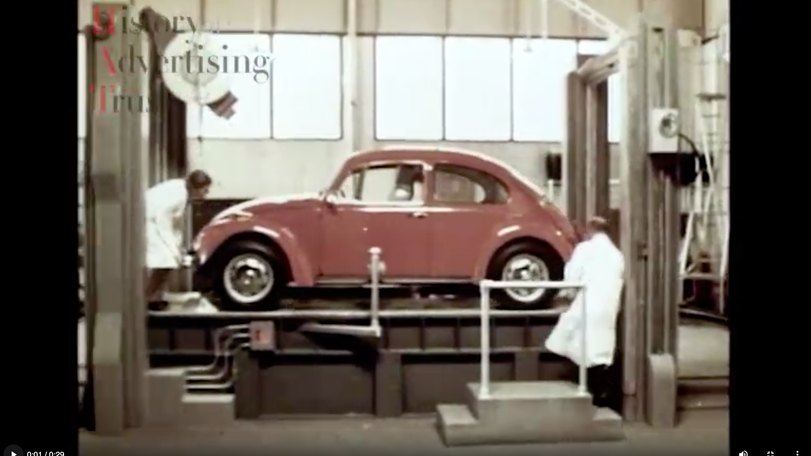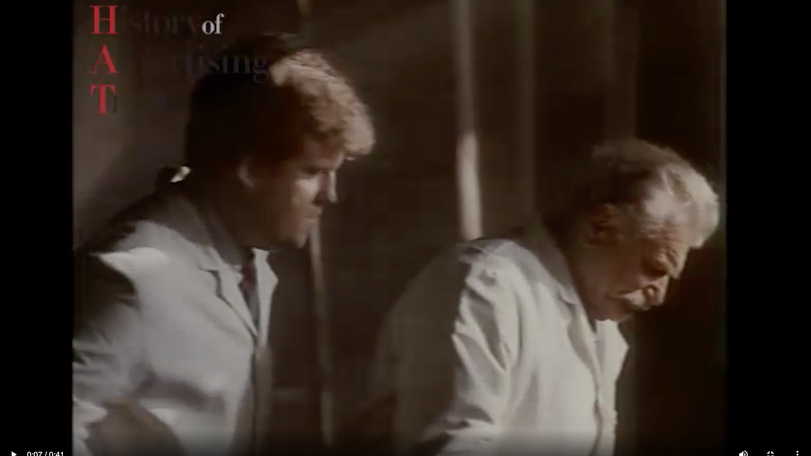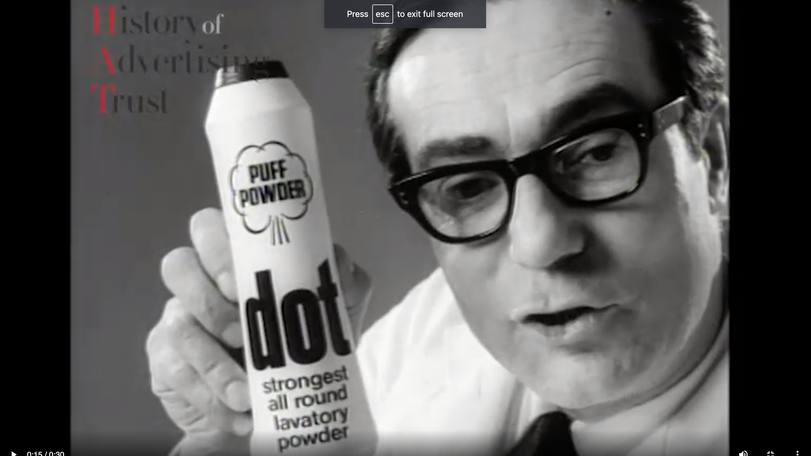
Online Marketing
You won't see the 'Doctor' now: the death of the white coat ad trope
The Covid crisis saw a new respect for scientific opinion. But don't expect the expert in the white coat - once a regular feature in commercials - to make an advertising comeback any time soon
08 September 2021
When Michael Gove made his notorious “people in this country have had enough of experts” comment on Sky News in the run up to the EU referendum in 2016 he probably didn’t realise that four years later he’d be part of a government that was relying on that same public to heed the advice of experts in order to prevent hundreds of thousands more Covid deaths.
Gove subsequently rowed back from his anti-expert position that year, insisting that he meant “a sub-class of experts, particularly economists, pollsters, social scientists…” But if there was a time when the British public could be forgiven for tiring of the boffins and eggheads that have controlled our lives for so long, it could be now; the influence of experts, and scientists in particular, through the pandemic has been profound.
Advertising, on the other hand, has shown little sign of tiring of experts – whether real or ephemeral. While MullenLowe - the government's Covid-19 public information agency - never wheeled out Professor Chris Whitty or Sir Patrick Vallance in a white lab coat even in the darkest days of the pandemic, such tropes have been used as an easy visualisation of expertise since the earliest days of advertising.
White-coated 'experts' have been used in ads to convey expertise for sectors as diverse as car manufacturing (Volkswagen Beetle and Golf), brewing (Smithwick’s alcohol-free bitter), as well as the more obvious lavatory cleaning (Dot bleach and Vortex bleach) and washing powder (OMO blue).
More egregious still was a 1959 commercial for Players Weights cigarettes featuring an expert in a white coat at work, before heading home to tuck into some delicious, healthy and relaxing fags:
Gen Kobayashi, the chief strategy officer at Engine Creative, points out that the use of “experts” in advertising is as old as the industry itself – from the snake oil salesman from the Medicine Shows with their ‘miracle cures’, to dentists in lab coats selling whiter that white smiles.
“There’s a very good reason why we’ve used experts to sell products for years, it works," Kobayashi says. "And that’s down to a behavioural bias called ‘The Messenger Effect’ or, in other words, our brains are hard wired to be heavily influenced by the individual who is communicating to us. Or to put it another way, more often than not, the person communicating the message can be just as powerful if not more powerful than the message itself.”
The white coat, therefore, dignifies authority and expertise - so it’s little wonder the advertising industry found it useful shorthand for giving these qualities to brands and sectors that often didn’t have them.
While more recent regulation has restricted their use (in the US the Federal Trade Commission had codified the “white-coat rule” stating that it is deceptive advertising to use actors dressed in white laboratory coats, to look like members of the medical profession, as spokespersons for a product in advertisements and commercials), in the UK some occasionally still slip through the net.
In 2017 the e-cigarette brand Safercigs had its website censured by the Advertising Standards Authority for showing a cartoon image of a man in a white coat with a stethoscope.
Much like the FTC, the ASA also has strict rules on the use of “Presentations, by doctors, dentists, veterinary surgeons, pharmaceutical chemists, nurses, midwives and the like that imply professional advice or recommendation” and “statements that imply professional advice or recommendation by people who are presented, whether directly or by implication, as being qualified to give that advice or recommendation”. This means that white lab coats are now mostly confined to medical professionals dentists (often curiously based in Ireland) saying which brand of toothpaste they use.
This 1980s spot from Colgate had the bizarre spectacle of a white coat wearing 'Grocer' called Mr Clark (played by Bill Treacher, best known for playing Arthur Fowler in EastEnders) advocating the use of Blue Minty Gel. A double deceit, of sorts, that wouldn't get past the regulators these days:
Some strategists, such as Tom White, the chief strategy officer at Abbott Mead Vickers BBDO, aren’t certain the white coat trick has worked for a while anyway. Nevertheless, expertise is still a quality that is valued.
Gen Kobayashi continues: “I think 'experts' can mean many different things - it doesn’t have to be a dentist in a white coat. An 'expert' could be the store staff that B&Q used a few years ago in their ads who were all aged over 50. This was because people place greater trust in DIY skills amongst people of a certain age – 'I trust my dad to do a better job than me when putting up furniture' etc. This takes us back to the principle of The Messenger Effect and I think smart brands will continue to think as carefully about the messenger as they do about the message they are communicating.”
AMV’s Tom White isn't so sure, drawing from the example of the German polymath Gottfried Leibniz - who was said to be the last person who knew everything there was to know at the time. “He died in 1716, which is before electricity had been harnessed, when communication meant writing a letter and all transport ran on grass or the wind. Point being, humanity long ago collectively conceded that all the combined knowledge in the world has become far too great for any one person to wrap their heads around,” he says.
This, he argues, puts into some kind of perspective the stuff we’ve heard in recent times - a la Gove - about people rejecting the information they get from figures of authority who have specialist skills, advanced knowledge or mastery of a particular subject.
Indeed, he thinks that advertising might even have contributed to the trend. "Maybe we in the brand communication business partly are complicit in all this. For years we’ve been telling people how they should have the confidence in themselves to live life on their own terms, to self-actualize and to back themselves rather than defer to others," he says.
Moreover, he thinks that the acquisition of knowledge - something that is so much easier than in Liebniz's day, thanks to Google - is now a social currency and that in a world of unpredictability, people like feeling a little bit more in control and a little smarter than everyone else.
For brands, the implication is clear: faux science will no longer work (and that's even if you can get it past regulators in the first place). The lab coated Messengers might have mostly been shot and replaced by other types, as Gen Kobayashi points out. But "transparency" and "the truth" (or as truthful as possible) are the messages that the best brands should be communicating - leaving consumers to make up their own minds. Michael Gove will be pleased. Possibly.










